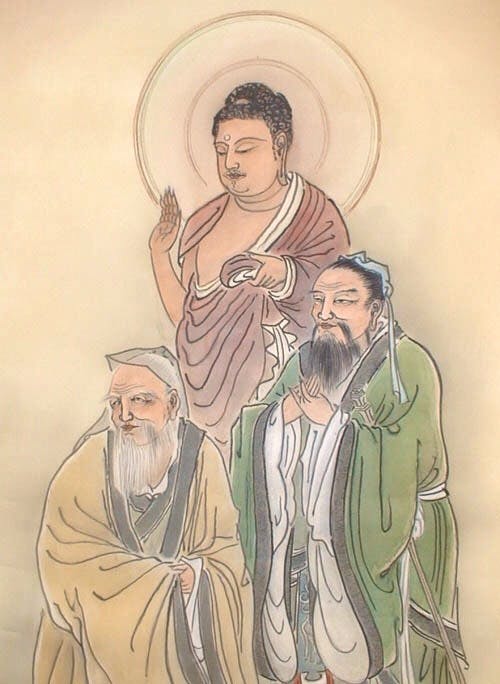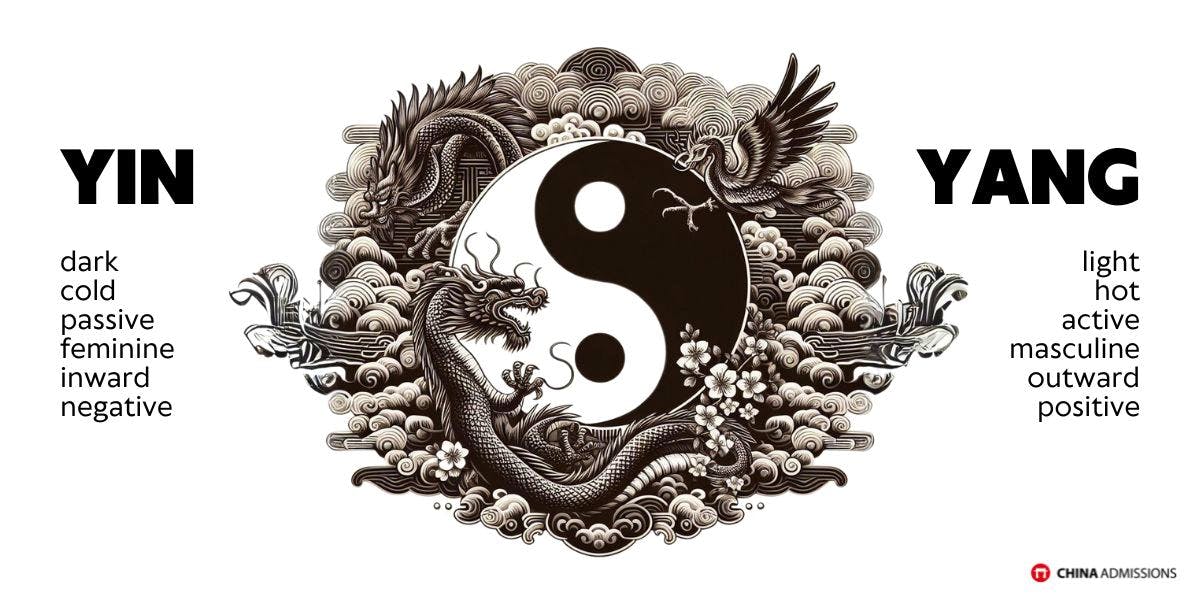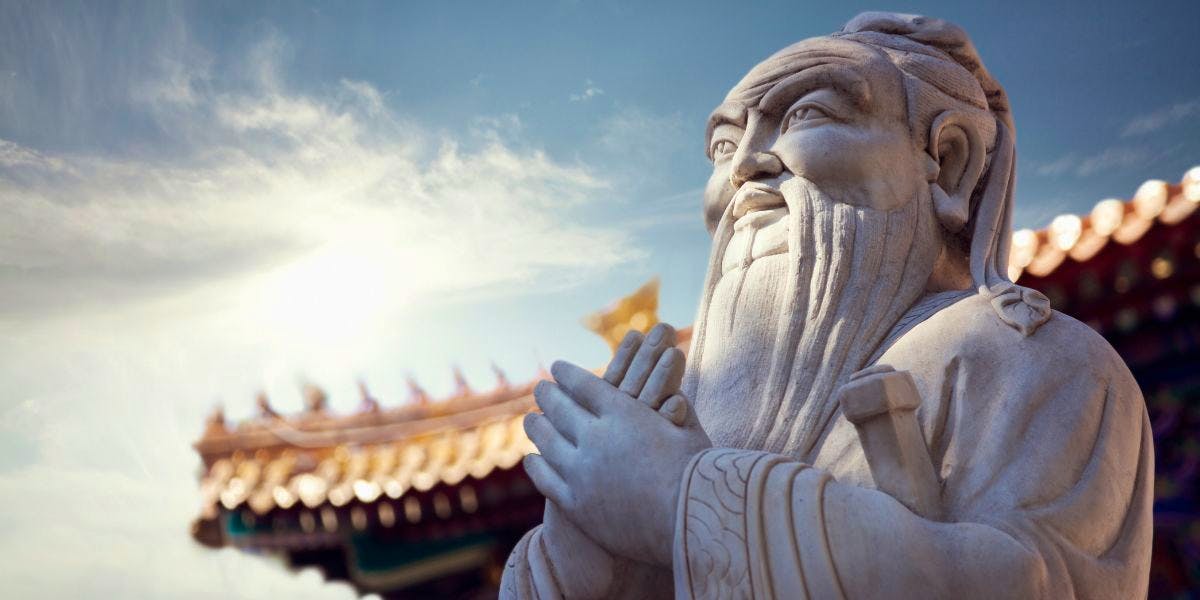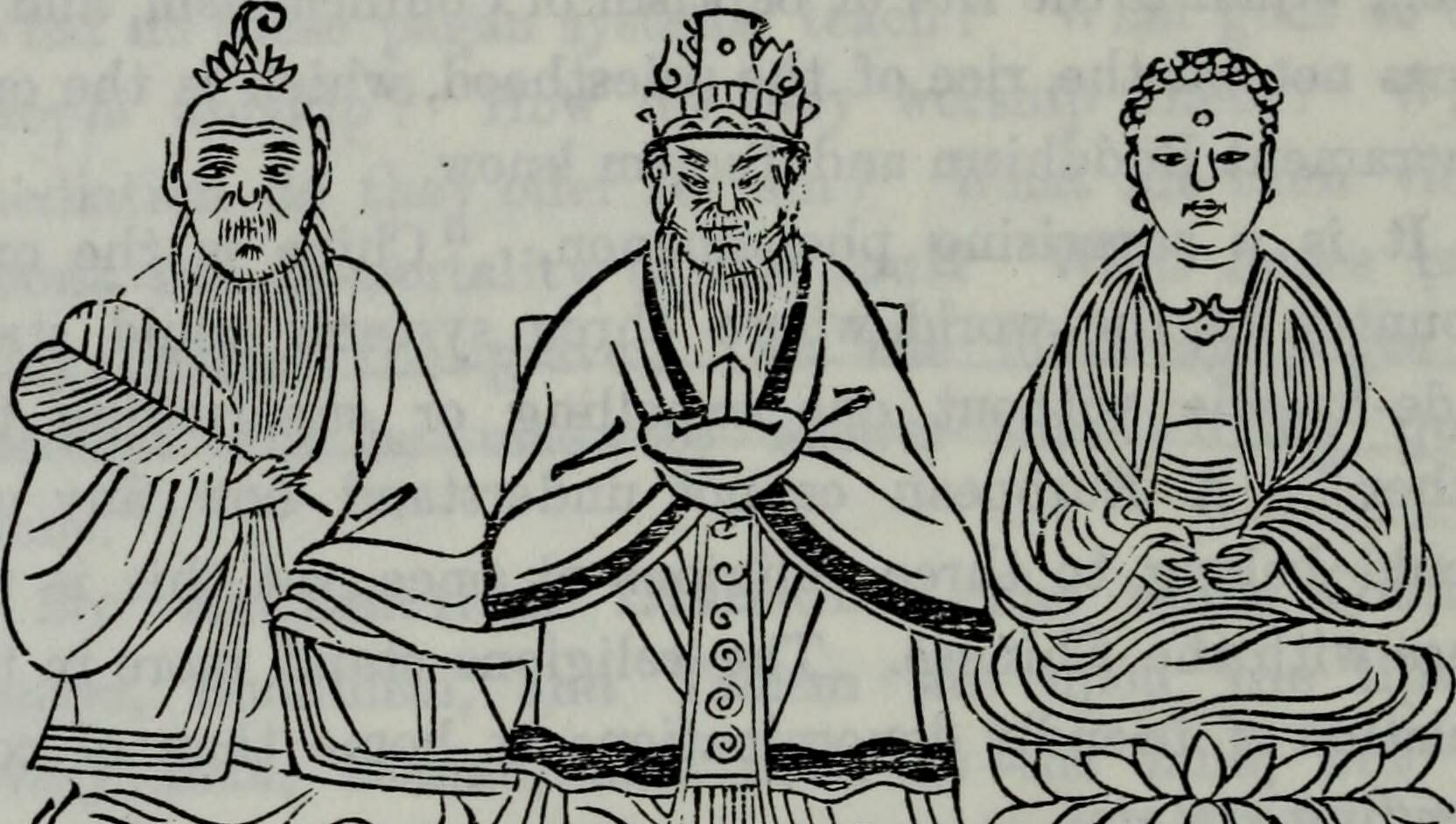While China is often associated with being an economic powerhouse and technological hub, one aspect that sometimes goes under the radar is its deep-rooted spirituality. Spirituality has a large influence in the country’s culture, having shaped the beliefs, values, and practices of its people and the social structures of society for thousands of years. There are three particular teachings recognized in China; Confucianism, Taoism (or Daoism), and Buddhism. Although each of these belief systems has its own unique set of rituals, practices, and philosophies, they coexist harmoniously in a myriad of ways.
When it comes to Chinese spirituality, It is fascinating to explore the history and evolution of Chinese spirituality, its cultural and artistic expressions, and its role in shaping the daily lives of the Chinese people. Understanding these spiritual dynamics encourages you to be more fully immersed in your study abroad experience, as it will allow you to unlock a deeper understanding and appreciation for the country. You may even be interested in spirituality as an area you’d like to practice or study. Let’s look deeper into the profound influence that spirituality has on Chinese culture and people.
The Three Teachings from Ancient China
Three Teachings in Harmony” (三敎合一 Sānjiào Héyī)


In China, the “three pillars of spirituality” began with Confucianism and Taoism, later introducing Buddhism. While these belief systems share some similarities with religions, they are considered distinct in many ways. For example, unlike some religions, spirituality in China is often more focused on personal growth and self-improvement than on strict adherence to a set of rules or doctrines. These three pillars of spirituality are intertwined even within individuals, many of whom choose to practice aspects of all three into their personal beliefs.
Here is an overview of the three teachings, and the similarities and differences between them:
Confucianism
- A philosophical and ethical system that originated in China.
- promotes virtues such as benevolence, justice, and wisdom.
- Serves as a moral compass that influences education, social structure, and many more aspects of daily life.
- Strives for a harmonious society based on mutual respect, cooperation, and harmony.
- Individuals are encouraged to behave ethically and better themselves by cultivating virtues and practicing self-discipline so as to better themselves.
Taoism (or Daoism)
- A philosophical and religious tradition from China based on the writings of Lao Tzu, Tao Te Ching
- Revolves around the concept of the Tao (or the Dao), which is the appropriate “way” or “path” of life.
- Emphasizes the natural world and its rhythms, suggesting that living in harmony with nature is essential for achieving balance and tranquility in life.
- Teachings of ancient sages impart gentle wisdom and encourage individuals to embrace simplicity, humility, and non-action.
Buddhism
- Originated in India and spread to many parts of Asia, including China.
- Teaches that all life is suffering, and that the cause of suffering is attachment to desires and the ego.
- The path to enlightenment involves the acceptance of suffering and the cultivation of wisdom, compassion, and mindfulness.
- Reminds us of the importance of meditation and ethical behavior, suggesting that individuals can lead more meaningful lives by following the Eightfold Path and the Five Precepts.
As a student in China, exploring the different aspects of these spiritual beliefs can broaden your perception and understanding of life. You may gain a deeper appreciation for the customs, traditions, and cultural nuances that shape the lives of the Chinese people. With beautiful messages that are applicable to everyone, you may even find ways to apply the spiritual teachings into your daily life.
Yin and Yang: Balance and Harmony

With deep roots in Chinese culture, the concept of Yin and Yang brings balance and harmony to all aspects of life. They represent two fundamental forces that are opposites but complementary, together creating a delicate balance between everything in the universe. Yin represents the feminine and passive qualities, while Yang embodies the masculine and active aspects.
It’s not hard to find the interplay of Yin and Yang reflected throughout Chinese culture and aspects of daily life, such as architecture, art, and even medicine. Traditional Chinese Medicine, for example, seeks to restore balance and optimal health by balancing opposing forces.
As a student in China, the Yin and Yang concept offers more than just understanding how locals live and think. Applying these ideas can be an excellent way to deal with the challenges of studying abroad. Embracing a world where opposites coexist can encourage personal growth, self-discovery, and wisdom. Here are some tips to apply Yin and Yang into your daily life:
- Eat a balanced diet of Yin and Yang foods. Yin foods are cool and moist, such as fruits, vegetables, and dairy products. Yang foods are warm and dry, such as meat, grains, and spices. Eating too much of either can cause health problems, so try to have a variety of foods in your meals.
- Practice some physical and mental exercises that balance Yin and Yang. Tai chi, yoga, and meditation are some examples of activities that can improve your health and well-being by harmonizing Yin and Yang in your body and mind.
- Respect the diversity and differences of people and cultures. Yin and Yang teach us that there is no absolute right or wrong, good or bad, but rather a relative and dynamic perspective. Be open-minded and tolerant of others, and learn from their experiences and views.
Rituals and Practices

Traditions and practices are important aspects of Chinese culture and spirituality. They connect the past with the present and foster a sense of continuity between generations. There are several spiritual practices commonly observed in China, including:
- Ancestor Worship: This practice involves paying respect to one’s ancestors, seeking their blessings, and maintaining a harmonious relationship with past generations. Families usually set up ancestral altars at home, decorated with incense, candles, and offerings. During festivals such as Qingming (Tomb-Sweeping Day), families visit ancestral graves, clean them, and offer food, paper money, and incense.
- Temple Visits: Temples are sacred spaces where people seek spiritual guidance, blessings, and solace. They may honor deities, historical figures, and philosophical ideals. Some temples have fortune-telling practices or divination rituals. When entering a temple, it is customary to light incense sticks and bow before the main deity. It is also common to bring offerings such as fruits, flowers, or symbolic items.
- Meditation and Mindfulness: Meditation is a practice that cultivates inner peace, self-awareness, and spiritual growth. It is practiced in various forms across China and the world. There are various techniques for meditating such as Zen meditation and Taoist inner alchemy. You can try it yourself by finding a quiet spot—whether in a temple, garden, or your own room. Sit comfortably, focus on your breath, and let go of distractions. Progress comes with consistent practice, so be patient. Guided meditations can be a useful place to begin.
Spiritual Sites and Landmarks
With its incredibly diverse spiritual landscape, China is home to a large number of China spiritual sites that resonate with centuries of devotion. Here are a few you won’t want to miss:
- Temple of Heaven: A complex of ancient buildings in Beijing where emperors prayed for good harvests and rain.
- Kaifeng New Synagogue: A reconstruction of the original synagogue that was built by the Jewish community in Kaifeng, tracing the history and culture of the Jews in China.
- Leshan Giant Buddha: The largest carved stone Buddha in the world, measuring 71 meters high and 24 meters wide, symbolizing the harmony of Yin and Yang.
- Potala Palace: The former residence of the Dalai Lama and the theocratic center of Tibet, showcasing the Tibetan Buddhist culture and architecture.
- Huaisheng Mosque: One of the oldest mosques in China, dating back to the 7th century, said to have been built by an uncle of the Prophet Muhammad.
- Nanjing Confucius Temple: A temple dedicated to Confucius, the founder of Confucianism, and a complex of historical and cultural attractions.
Remember to approach these sites with curiosity, respect, and an open heart.
Spirituality in Chinese Education
While spirituality is not a formal subject in the Chinese education system, it is often found integrated into various aspects of the curriculum and student life, especially in universities and colleges. Some universities in China have departments or faculties dedicated to spirituality. For example, Tsinghua University’s Center for the Study of Chinese Culture and Spirituality aims to promote academic research and public education on the spiritual traditions and values of China. Zhejiang University’s Center for Spirituality and Society focuses on exploring the relationship between spirituality and social development.
Many universities offer resources, activities, and clubs to support spirituality for students and staff. Universities are often equipped with chapels, prayer rooms, meditation centers, or religious associations for different faiths. There may also be lectures, workshops, seminars, field trips, or volunteer service on spiritual beliefs and topics, such as the meaning of life, the cultivation of inner qualities, and the exploration of religious and cultural diversity. Some universities provide training and certification in spiritual disciplines, such as meditation, yoga, tai chi, or traditional Chinese medicine.
- Bachelor’s in Religion Studies – Peking University
- Bachelor’s in Global China Studies – New York University Shanghai
- Master’s in Chinese Religion – Fudan University
Cultural Etiquette and Respect
As a foreign student studying in China, it is important to show respect for Chinese spiritual beliefs and practices. Here are some tips on how to do so:
- Educate yourself: Learn about the spiritual beliefs and practices of the local community. This can be done through reading, attending religious ceremonies, or speaking with locals. Understanding the beliefs and values of the host community is essential for showing respect.
- Dress appropriately: When visiting spiritual sites or attending religious ceremonies, it is important to dress modestly and conservatively. Avoid wearing revealing or inappropriate clothing. When in doubt, dress more formally than you normally would.
- Behave respectfully: While at a spiritual site or during a religious ceremony, be mindful of your behavior. Avoid talking loudly, using your phone, or engaging in any disruptive activities. Show respect by remaining quiet and listening to the teachings.
- Interact appropriately: If you are invited to participate in a religious ceremony, follow the lead of those around you. If you are unsure of what to do, simply observe and follow along. Be respectful of the customs and rituals of the local community.
Study Abroad in China
Spirituality in China is a fascinating topic that can offer a valuable perspective on life. Studying abroad in China allows you to experience the diversity and richness of China’s spiritual heritage and culture,. You can also develop your spiritual potential and contribute to social and natural harmony, while appreciating the influence of different religions and belief of people worldwide. Spirituality in China can be a life-changing journey for you, where you can discover your true self and potential.
If you’re just getting started on your study abroad journey, browse our platform to find programs and universities in China you can apply to online. We also invite you to book a call with us to get your questions answered.
- The Top Majors to Study at United International College (UIC) in 2025 - December 19, 2024
- United International College (UIC) Entrance Scholarship: Apply Now for 30% Off Your Tuition - November 29, 2024
- What Students Are Saying about Chinese Language Programs - October 27, 2024
